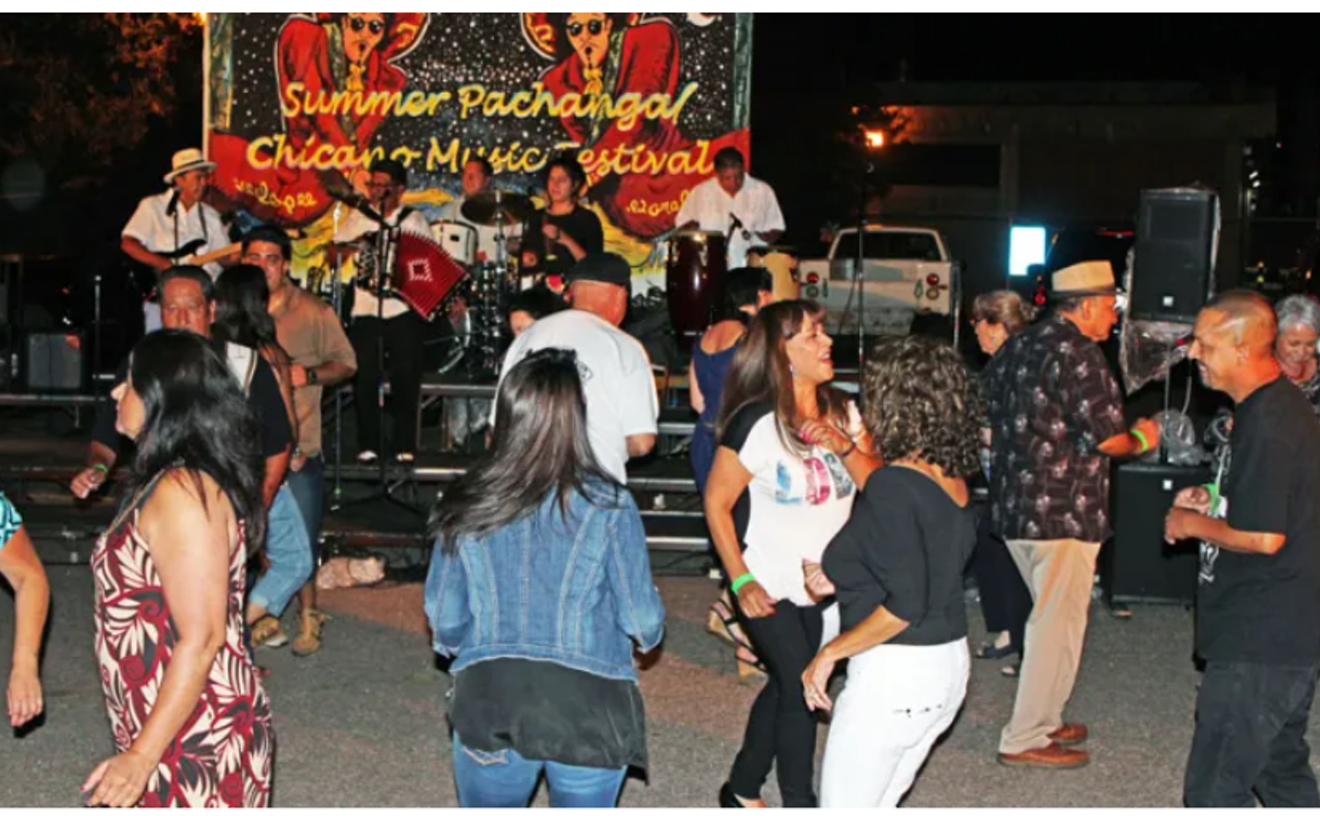Kalyn Heffernan, the high-pitched, heavy-hitting rapper who heads the group, wasn’t preaching about Jesus. Instead, she rapped about her life story in songs like “Hard Out Here for a Gimp” and, between sets, talked about making music, about social justice and about her mistrust of the government. She blasted state violence and the criminal-justice system.
Looking back, she can only guess at how she was able to get away with radical political talk in a state-run institution.
“I have this strange privilege of being able to push boundaries more than most,” Heffernan says. “I’m not considered a threat. I’m a small white woman in a wheelchair. I’m patronized and pitied.”
So she continued, every now and then giving the side-eye to the guards to see if they were going to intervene. They stood by, seeming to enjoy themselves, and chatted with the musicians after the two-hour set.
“We made friends with a lot of the prisoners, a lot of the guards and a lot of the staff,” Heffernan says. “It’s a trip to be inside something you want to dismantle.”
The performance was one of six stops at prisons and community centers on Wheelchair Sports Camp’s Tiny Box tour, a 2018 collaboration with the Music District in Fort Collins and the music-education nonprofit where Heffernan works, Youth on Record.
The Tiny Box tour launched at the nonprofit on November 18. At that show, kids breakdanced, ran around and rapped along. The fall tour included shows and workshops at the Fremont facility, which houses male inmates; La Vista Women’s Correctional Facility and the Youthful Offender System in Pueblo; and community centers on Ute and Navajo tribal land.
The Music District in Fort Collins, a regional music incubator funded by the Bohemian Foundation, helped sponsor the tour through its Detour program, which connects musicians with marginalized communities across the state that rarely get to enjoy live music. Flobots, Isaac Slade of The Fray and Chimney Choir have participated, visiting elder-care facilities and classrooms.
In 2017, Heffernan was asked if Wheelchair Sports Camp would be interested in participating.
“My idea was to hit the seedy places of Colorado that we don’t get to go through,” Heffernan recalls. “The wild person that I am, I said, ‘Let’s go through the prisons and tribal lands.’”
Her idea was to start the tour that summer. She began working with the staff at the Music District to set up shows — mostly in rural Colorado, in places like Cañon City, where the prison economy rules the town.
Navigating the bureaucracy to play at prisons was a challenge. The Department of Corrections ran background checks on all of the bandmembers. Every piece of gear they planned to take inside — from XLR cables and adapters to drumsticks and mics — had to be written down on a checklist for guards to review. Then there were the regular headaches that come with any tour, like scheduling dates with bandmates and borrowing equipment to take on the road.
But in June that year, Heffernan decided to join disability activists from ADAPT in a sit-in at Republican Cory Gardner’s Denver office for three days. Refusing to eat, she raised hell and garnered national headlines, demanding that the senator reject Donald Trump’s attempt to repeal the Affordable Care Act.

Kaylyn Heffernan was arrested after a protest at Senator Cory Gardner's office.
Courtesy of Kalyn Heffernan
The arrest and impending court dates forced her to scrap the 2017 prison tour.
She called her Department of Corrections contacts, explained the situation, and they were sympathetic, inviting her back when her legal troubles were resolved. The Music District was also supportive, pledging to fund rescheduled dates.
The whole time, Heffernan wondered how her music would ever be okay to perform in prison; after all, Wheelchair Sports Camp doesn’t play it safe.
Heffernan slings piss and vinegar through lyrics that dive into the muck of life. Never afraid to call out people with privilege — herself included — she spouts about class, race and queer identity, wielding music as a weapon. She raps about smoking weed, disability politics, and rich people pushing poor people out of their neighborhoods with language that would make pirates blush.
With jazz trumpeter Joshua Trinidad, drummer Gregg Ziemba and multi-talented impresario Wesley Watkins, she takes artistic innovation seriously. Wheelchair Sports Camp vandalizes standard twelve-note octaves and the predictable beats of 4/4 time, breaking into long passages of noise as unwieldy as her political rhetoric.
She refuses to play respectability politics, and she is exactly who she says she is: a foulmouth, unafraid to F-bomb everybody from Gardner to Denver City Councilman Albus Brooks, accusing them of attacking poor people through policy.
In April 2018, Heffernan announced that she was running against Mayor Michael Hancock in the May 2019 municipal elections — a strange move, since she says she can’t stand the “bullshit” of politics. While other mayoral hopefuls were polishing up affordable-housing plans and building alliances with the faith-based community, Heffernan was busy rebooking the Tiny Box tour for November.
She recruited Michelle Rocqet, the beatboxing singer in The Milk Blossoms, and Joshua Abeyta of Chicano funk band Los Mocochetes, both Heffernan’s colleagues at Youth on Record, to perform and share their stories alongside Wheelchair Sports Camp on the tour. Trinidad wasn’t able to make the dates, so Watkins, Ziemba and Heffernan played the tour as a trio. Kate Warner of Mirror Fears loaned her PA system and came along to mix sound.
From the moment the musicians hit the road, they launched into conversations about race, class, disability, and the prison system and the people living inside.
“We’re not far from these people,” Heffernan says. “We are these people.”
After all, Heffernan herself has spent time in jail. Abeyta came along because his own mother had been a prison guard and he had spent some of his younger years locked up for a felony in some of the same institutions he would be playing.
Tour stops at the prisons went like this: The musicians would lug their gear in, reviewing each instrument and piece of equipment they planned to bring inside with a guard. Then they would set up in a chapel, a gym or a rec room, where they would offer music workshops, share their own stories with inmates and perform songs. Then they would pack up and head to the next facility.

Wheelchair Sports Camp performs at a youth detention center. Inmates were not allowed to be photographed.
Kerri Delarosa
“I didn’t want to bring a bunch of cool stuff for them to learn and then take it away,” Heffernan explains. She wanted to give the prisoners skills they could carry with them forever.
Women prisoners in one facility wrote a song called “Love Is Forever.” Men wrote an upbeat number called “Tropical Sunshine.” “We sang ‘Waterfalls’ by TLC at the women’s facility, and that was fucking adorable,” Heffernan recalls. “The youth facility was full of rapper boys… . A lot of the boys had love songs about missing their loved ones.”
By the end of each show, the musicians and inmates were sharing stories and everybody was friends, though they weren’t allowed to exchange contact information.
“Thank you for coming,” one woman told Heffernan. “This is the first time I don’t feel like I’m in prison.”














